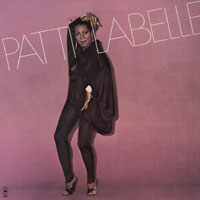
Patti LaBelle is the debut solo album by American singer Patti LaBelle, released in 1977. The first album LaBelle recorded after sixteen years fronting the band Labelle, it is notable for the dance hit, "Joy to Have Your Love", the classic gospel-inspiring ballad, "You Are My Friend" and the Angelo "Funky Knuckles" Nocentelli mid-tempo number, "I Think About You".

Winner in You is the eighth studio album by American R&B singer Patti LaBelle. It was released by MCA Records on April 28, 1986, in the United States. Recording sessions took place during 1985–1986. Production was handled by several record producers, including Burt Bacharach, Carole Bayer Sager, and Nickolas Ashford, among others.

"Oh, People" is a song by American singer Patti LaBelle. It was written by Andy Goldmark and Bruce Roberts for her eighth studio album Winner in You (1986), while production was helmed by Richard Perry. Issued as the album's second single, it was released by MCA Records on June 30, 1986 in the United States. The song is a socially conscious anthem with lyrics pleading to individuals to unite and "build the world we want together."

"Stir It Up" is a song by American singer Patti LaBelle. It was written by Dan Sembello and Allee Willis and recorded by LaBelle for the motion picture soundtrack album for the 1984 action comedy film Beverly Hills Cop; production was helmed by Harold Faltermeyer and Keith Forsey. "Stir It Up" was the second of two songs she recorded for MCA Records immediately after signing her new contract with them. Her first full-length album for MCA, Winner in You, would follow the next year.
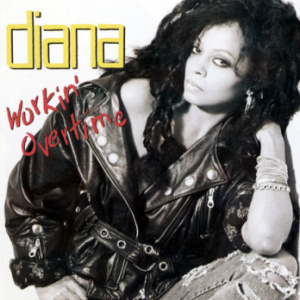
Workin' Overtime is the eighteenth studio album by American singer Diana Ross, released on June 6, 1989, by Motown Records. Her first Motown album with new material since To Love Again (1981) after a short stint with RCA Records, Ross reunited with frequent collaborator Nile Rodgers, chief producer of her most successful album to date Diana (1980), to make this album which was an attempt to gear her to a much younger audience bringing in new jack swing productions and house music.
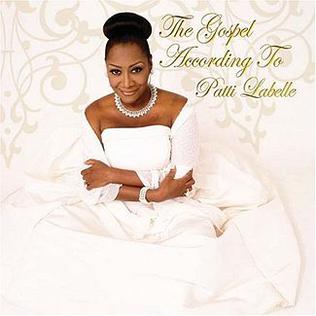
The Gospel According to Patti LaBelle is the first gospel album by American singer Patti LaBelle. It was released on November 21, 2006 through music executive Jheryl Busby's indie label Umbrella Recordings and Bungalo Records.

"Ghetto Musick" and "Prototype" are two songs by American hip-hop duo OutKast, released as the fourth and final single from their fifth studio album, Speakerboxxx/The Love Below (2003). "Ghetto Musick" is on Disc 1 (Speakerboxxx) and "Prototype" is on Disc 2 (The Love Below). "Ghetto Musick" was released as a CD single in the United Kingdom on September 22, 2003, and "Prototype" was serviced to US radio in September 2004. The double A-side version was issued in Australia in November 2004, and "Ghetto Musick" was added to US radio during the same month.
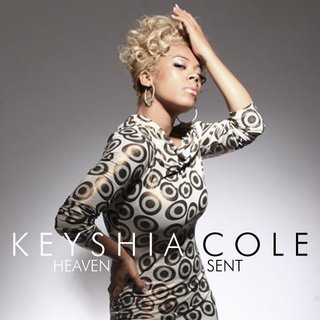
Heaven Sent is a song recorded by American singer Keyshia Cole. It was written by Cole, Jason Farmer, Alex Francis, and Lamont Wilson for her second studio album Just like You (2007), while production was overseen by Francis and Farmer with additional credit by Ron Fair. The ballad was released as the album's fourth and final single in March 2008. "Heaven Sent" became cole's third chart topper on the US Hot R&B/Hip-Hop Songs and earned two Grammy Award nominations for Best Female R&B Vocal Performance and Best R&B Song. An accompanying music video was shot in Hawaii and is based on the poem "Footprints."
"You Are My Friend" is a ballad co-written and recorded by American singer Patti LaBelle, released as the second single off her self-titled debut album, in 1978 on the Epic label. While it only reached as high as number sixty-one on the Billboard Hot-Selling Soul Singles chart upon its initial release, it has gone on to become one of the singer's signature anthems.
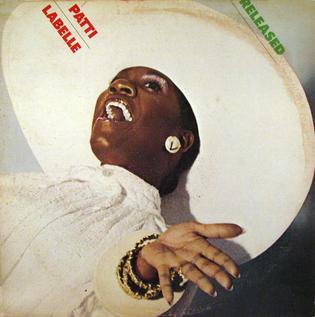
Released is the fourth studio album by the American singer Patti LaBelle. It was released by Epic Records on March 14, 1980, in the United States. The album featured the hits "I Don't Go Shopping", written by previous collaborator David Lasley and musician Peter Allen, and the title track, "Release ", which was written by Allen Toussaint, who produced the entire album. The title track found some international success upon its release while "I Don't Go Shopping" was her first top 40 R&B charted single since 1977. Along with her frequent collaborator, James "Budd" Ellison, LaBelle lyrically co-wrote the last five songs on the album.
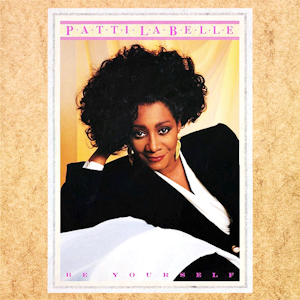
Be Yourself is the ninth solo album by American singer-songwriter Patti LaBelle. It was released by MCA Records on June 26, 1989 in the United States. Her second album with the company following her 1986 platinum album Winner in You, it features the single, "If You Asked Me To" which was also featured on the soundtrack to the James Bond movie, Licence to Kill (1989), and the R&B top ten Prince-written hit "Yo Mister." The album marked LaBelle's foray into new jack swing music with the tracks "I Got It Like That", produced by Full Force, and "Love 89", another Prince contribution.
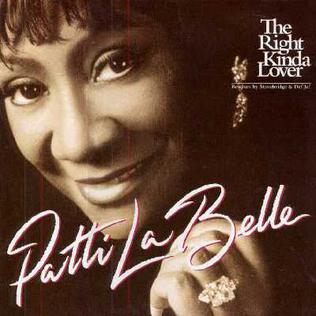
"The Right Kinda Lover" is a song by American singer and actress Patti LaBelle. It was written by Ann Bennett-Nesby, James Harris III, Terry Lewis, and James "Big Jim" Wright, while production was helmed by Jimmy Jam and Terry Lewis, with Wright as co-producing. The song was released as the first single from her LaBelle's 12th album, Gems (1994), and appeared on the soundtrack to the 1994 film Beverly Hills Cop III, starring Eddie Murphy.

American R&B singer Patti LaBelle has released eighteen studio albums, three live albums, fourteen compilation albums, and forty-seven singles. To date, LaBelle has sold 50 million records worldwide. According to RIAA, she has attained six gold and one platinum album in the United States. LaBelle has also charted forty-two hits on Billboard's Hot/R&B Hip-Hop Songs, 13 of which reached the Top 10.

Flame is the thirteenth studio album by American singer Patti LaBelle. It was released by MCA Records on June 24, 1997, in the United States.

"When You Talk About Love" is a song recorded by American singer and actress Patti LaBelle. It was written by Ann Nesby, James Harris III, Terry Lewis, and James "Big Jim" Wright for her thirteenth studio album, Flame (1997). Production was helmed by Harris and Lewis, with Wright credited as co-producer. Released as the album's lead single, it became one of the LaBelle's most popular hit singles in the 1990s, reaching number 56 on the US Billboard Hot 100 and number 12 on the Billboard Hot R&B/Hip-Hop Songs chart. A dance remix of the song helped to bring the song to number-one on the Billboard Hot Dance Club Songs chart, making it the fourth number-one dance single in LaBelle's career. The accompanying music video featured LaBelle playing a teacher giving a "class" about love.
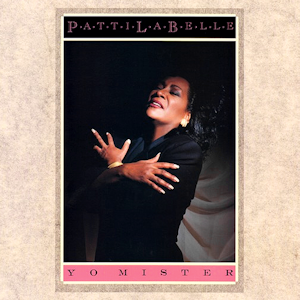
"Yo Mister" is a song by American singer Patti LaBelle. It was written and produced by Prince for her 1989 album, Be Yourself. The singer features on various instruments and background vocals on the song which was released as a single in July 1989. It became a top ten hit on the US Hot R&B/Hip-Hop Songs when it peaked at number six, becoming one of LaBelle's biggest R&B hits. "Yo Mister"'s single mix and corresponding video version was mixed by Chris Lord-Alge.

"Feels Like Another One" is a song by American singer Patti LaBelle. It was written by LaBelle along with Sharon Barnes, James R. "Budd" Ellison, and Michael Stokes for her eleventh studio album Burnin (1991), while production was helmed by Stokes. The new jack swing-styled track served as the album's leading single and featured a rap from rapper Big Daddy Kane. The song became successful on the US Hot R&B/Hip-Hop Songs as it ended up peaking at number three. The video for the song was shot at the Apollo Theater and also featured Kane, who appeared at LaBelle's show wearing a tux.
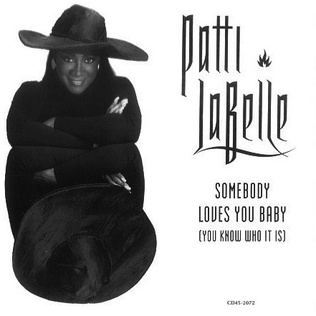
"Somebody Loves You Baby " is a song by American singer Patti LaBelle. It was written and produced by Bunny Sigler and Eugene "Lambchops" Curry for her 1991 studio album, Burnin'. The song reached number two on the US Billboard Hot R&B/Hip-Hop Songs in early 1992. Like her previous single "Feels Like Another", "Somebody Loves You..." was also shot at the Apollo Theater.

"When You've Been Blessed " is a song by American singer Patti LaBelle. It was written by LaBelle, Nona Hendryx, Nathanial Wilkie, and James "Budd" Ellison for her 1991 album Burnin', while production was overseen by the latter. The song was released as the third single off the album in the spring of 1992.

"Gotta Go Solo" is a song recorded by American singer Patti LaBelle featuring Ronald Isley. It was written by LaBelle, Gordon Chambers, and Troy Taylor, while production was helmed by Chambers and Taylor. "Gotta Go Solo" was released as a standalone single in 2004 and later included as a bonus track on the Japanese edition of her 2005 studio album Classic Moments. It peaked at number one on the US Adult R&B Songs.



















